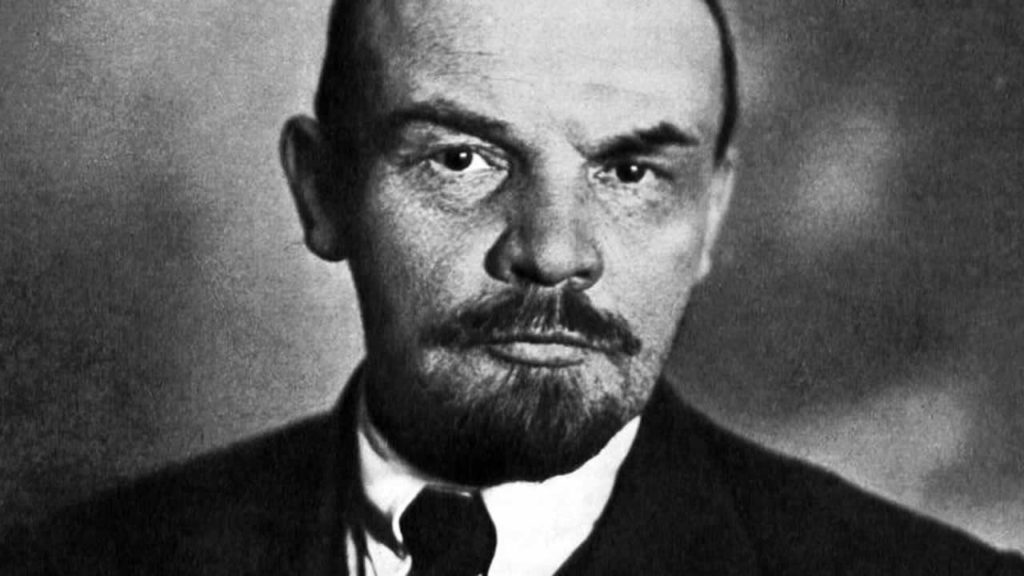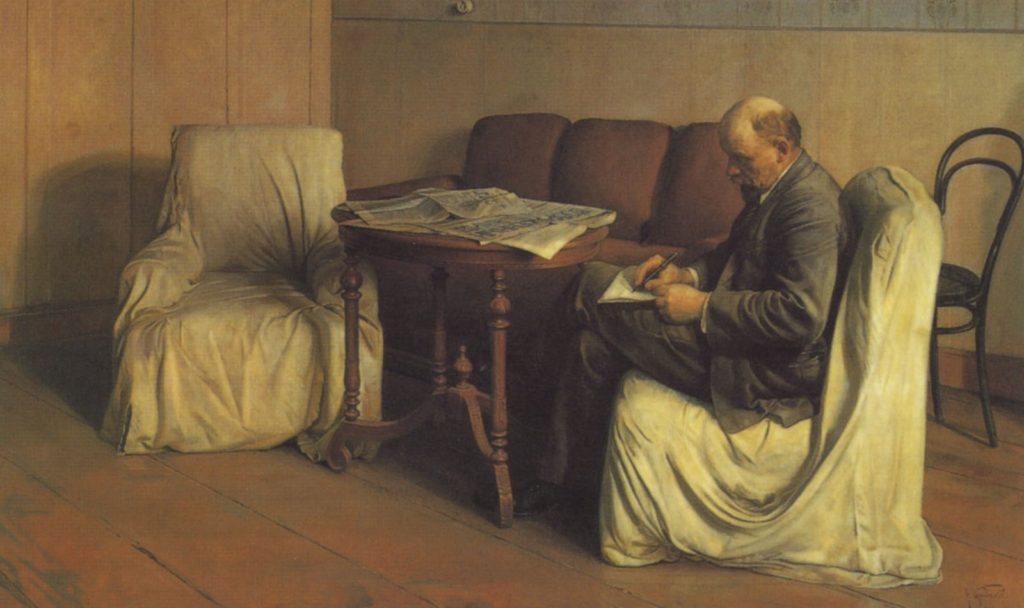
Lenin and the 1917 Russian Revolution
Thursdays, 6:00pm, Kresge Library/Study Center Rm. 348
University of California
1156 High St, Santa Cruz, CA 95064
Recommended background readings
Week 1 | June 29, 2017
Week 2 | July 6, 2017
Week 3 | July 13, 2017
Week 4 | July 20, 2017
Week 5 | July 27, 2017
Week 6 | August 3, 2017
II. Introduction to revolutionary Marxism
Santa Cruz: Thursdays, 5:30pm, Kresge Library/Study Center Rm. 348
University of California, Santa Cruz
1156 High St, Santa Cruz, CA 95064
• required / + recommended reading
Marx and Engels readings pp. from Robert C. Tucker, ed., Marx-Engels Reader (Norton 2nd ed., 1978)
Recommended winter break preliminary readings:
+ Leszek Kolakowski, “The concept of the Left” (1968)
+ Richard Appignanesi and Oscar Zarate / A&Z, Introducing Lenin and the Russian Revolution / Lenin for Beginners (1977)
+ Sebastian Haffner, Failure of a Revolution: Germany 1918–19 (1968)
+ Tariq Ali and Phil Evans, Introducing Trotsky and Marxism / Trotsky for Beginners (1980)
+ James Joll, The Second International 1889–1914 (1966)
+ Edmund Wilson, To the Finland Station: A Study in the Writing and Acting of History (1940), Part II. Ch. (1–4,) 5–10, 12–16; Part III. Ch. 1–6
Winter 2017
I. What is the "Left?" -- What is "Marxism?"
Week 11. What is Marxism? VI. Class consciousness | Jan. 12, 2017
• Lukács, Original Preface (1922), “What is Orthodox Marxism?” (1919), “Class Consciousness” (1920), History and Class Consciousness (1923)
+ Marx, Preface to the First German Edition and Afterword to the Second German Edition (1873) of Capital (1867), pp. 294–298, 299–302
Week 12. What is Marxism? VII. Ends of philosophy | Jan. 19, 2017
• Korsch, “Marxism and philosophy” (1923)
+ Marx, To make the world philosophical (from Marx's dissertation, 1839–41), pp. 9–11
+ Marx, For the ruthless criticism of everything existing (letter to Arnold Ruge, September 1843), pp. 12–15
+ Marx, "Theses on Feuerbach" (1845), pp. 143–145
Winter–Spring 2017
II. Introduction to revolutionary Marxism
Week 13. Revolutionary leadership | Jan. 26, 2017
• Rosa Luxemburg, “The Crisis of German Social Democracy” Part 1 (1915)
• J. P. Nettl, “The German Social Democratic Party 1890–1914 as a Political Model” (1965)
• Cliff Slaughter, “What is Revolutionary Leadership?” (1960)
Week 14. Reform or revolution? | Feb. 2, 2017
• Luxemburg, Reform or Revolution? (1900/08)
Week 15. Lenin and the vanguard party | Feb. 9, 2017
• Spartacist League, Lenin and the Vanguard Party (1978)
Week 16. What is to be done? | Feb. 16, 2017
• V. I. Lenin, What is to be Done? (1902)
+ Richard Appignanesi and Oscar Zarate / A&Z, Introducing Lenin and the Russian Revolution / Lenin for Beginners (1977)
Week 17. Mass strike and social democracy | Feb. 23, 2017
• Luxemburg, The Mass Strike, the Political Party and the Trade Unions (1906)
+ Luxemburg, "Blanquism and Social Democracy" (1906)
Week 18. Permanent revolution | Mar. 2, 2017
• Leon Trotsky, Results and Prospects (1906)
+ Tariq Ali and Phil Evans, Introducing Trotsky and Marxism / Trotsky for Beginners (1980)
Week 19. State and revolution | Mar. 9, 2017
• Lenin, The State and Revolution (1917)
Week 20. Imperialism | Mar. 16, 2017
• Lenin, Imperialism, the Highest Stage of Capitalism (1916)
+ Lenin, Socialism and War Ch. 1 The principles of socialism and the War of 1914–15 (1915)
Week 21. | Mar. 30, 2017 (spring break)
Week 22. | Apr. 6, 2017 [Platypus international convention]
Week 23. Failure of the revolution | Apr. 13, 2017
• Luxemburg, “What does the Spartacus League Want?” (1918)
• Luxemburg, “On the Spartacus Programme” (1918)
+ Luxemburg, "German Bolshevism" (AKA "The Socialisation of Society") (1918)
+ Luxemburg, “The Russian Tragedy” (1918)
+ Luxemburg, “Order Reigns in Berlin” (1919)
+ Sebastian Haffner, Failure of a Revolution: Germany 1918–19 (1968)
Week 24. Retreat after revolution | Apr. 20, 2017
• Lenin, “Left-Wing” Communism: An Infantile Disorder (1920)
+ Lenin, "Notes of a Publicist" (1922)
Week 25. Dialectic of reification | Apr. 27, 2017
• Lukács, “The Standpoint of the Proletariat” (Part III of “Reification and the Consciousness of the Proletariat,” 1923). Available in three sections from marxists.org: section 1 section 2 section 3
Week 26. Lessons of October | May 4, 2017
• Trotsky, The Lessons of October (1924) [PDF] + Trotsky, "Stalinism and Bolshevism" (1937)
Week 27. Trotskyism | May 11, 2017
+ Trotsky, "To build communist parties and an international anew" (1933)
• Trotsky, The Death Agony of Capitalism and the Tasks of the Fourth International (1938)
+ Trotsky, "Trade unions in the epoch of imperialist decay" (1940)
+ Trotsky, Letter to James Cannon (September 12, 1939)
Week 28. The authoritarian state | May 18, 2017
• Friedrich Pollock, "State Capitalism: Its Possibilities and Limitations" (1941) (note 32 on USSR)
• Max Horkheimer, "The Authoritarian State" (1942)
Week 29. On the concept of history | May 25, 2017
• epigraphs by Louis Menand (on Edmund Wilson) and Peter Preuss (on Nietzsche) on the modern concept of history
+ Charles Baudelaire, from Fusées [Rockets] (1867)
+ Bertolt Brecht, "To posterity" (1939)
+ Walter Benjamin, "To the planetarium" (from One-Way Street, 1928)
+ Benjamin, "Experience and poverty" (1933)
+ Benjamin, Theologico-political fragment (1921/39?)
• Benjamin, "On the Concept of History" (AKA "Theses on the Philosophy of History") (1940) [PDF] • Benjamin, Paralipomena to "On the Concept of History" (1940)
Week 30. Reflections on Marxism | Jun. 1, 2017
• Theodor Adorno, “Reflections on Class Theory” (1942)
• Adorno, “Imaginative Excesses” (1944–47)
+ Adorno, Dedication, "Bequest", "Warning: Not to be Misused" and "Finale", Minima Moralia (1944–47)
+ Horkheimer and Adorno, "Discussion about Theory and Praxis" (AKA "Towards a New Manifesto?") [Deutsch] (1956)
Week 31. Theory and practice | Jun. 8, 2017
+ Adorno, “On Subject and Object” (1969)
• Adorno, “Marginalia to Theory and Praxis” (1969)
• Adorno, “Resignation” (1969)
+ Adorno, “Late Capitalism or Industrial Society?” (AKA “Is Marx Obsolete?”) (1968)
+ Esther Leslie, Introduction to the 1969 Adorno-Marcuse correspondence (1999)
+ Adorno and Herbert Marcuse, correspondence on the German New Left (1969)
Thursdays, 5:30pm, Kresge Library/Study Center Rm. 356 (upstairs)
Week 1. What is the Left? I. Capital in history | Oct. 6, 2016
• epigraphs on modern history and freedom by Louis Menand (on Marx and Engels) and Karl Marx, on "becoming" (from the Grundrisse, 1857–58)
• Chris Cutrone, "Capital in history" (2008)
+ Capital in history timeline and chart of terms
+ video of Communist University 2011 London presentation
• Cutrone, "The Marxist hypothesis" (2010)
Week 2. What is the Left? II. Bourgeois society | Oct. 13, 2016
• Immanuel Kant, "Idea for a universal history from a cosmopolitan point of view" and "What is Enlightenment?" (1784)
• Benjamin Constant, "The liberty of the ancients compared with that of the moderns" (1819)
+ Jean-Jacques Rousseau, Discourse on the origin of inequality (1754)
+ Rousseau, selection from On the social contract (1762)
Week 3. What is the Left? III. Failure of Marxism | Oct. 20, 2016
• Max Horkheimer, selections from Dämmerung (1926–31)
• Adorno, “Imaginative Excesses” (1944–47)
Week 4. What is the Left? IV. Utopia and critique | Oct. 27, 2016
• Leszek Kolakowski, “The concept of the Left” (1968)
• Marx, To make the world philosophical (from Marx's dissertation, 1839–41), pp. 9–11
• Marx, For the ruthless criticism of everything existing (letter to Arnold Ruge, September 1843), pp. 12–15
Week 5. What is Marxism? I. Socialism | Nov. 3, 2016
• Marx, selections from Economic and philosophic manuscripts (1844), pp. 70–101
+ Commodity form chart of terms
• Marx and Friedrich Engels, selections from the Manifesto of the Communist Party (1848), pp. 469-500
• Marx, Address to the Central Committee of the Communist League (1850), pp. 501–511
Week 6. What is Marxism? II. Revolution in 1848 | Nov. 10, 2016
• Marx, The coming upheaval (from The Poverty of Philosophy, 1847) and Class struggle and mode of production (letter to Weydemeyer, 1852), pp. 218-220
• Engels, The tactics of social democracy (Engels's 1895 introduction to Marx, The Class Struggles in France), pp. 556–573
• Marx, selections from The Class Struggles in France 1848–50 (1850), pp. 586–593
• Marx, selections from The 18th Brumaire of Louis Bonaparte (1852), pp. 594–617
Week 7. What is Marxism? III. Bonapartism | Nov. 17, 2016
+ Karl Korsch, "The Marxism of the First International" (1924)
• Marx, Inaugural address to the First International (1864), pp. 512–519
• Marx, selections from The Civil War in France (1871, including Engels's 1891 Introduction), pp. 618–652
+ Korsch, Introduction to Marx, Critique of the Gotha Programme (1922)
• Marx, Critique of the Gotha Programme, pp. 525–541
• Marx, Programme of the Parti Ouvrier (1880)
Week 8. What is Marxism? IV. Critique of political economy | Nov. 24, 2015
+ Commodity form chart of terms
• Marx, selections from the Grundrisse (1857–61), pp. 222–226, 236–244, 247–250, 276–293 ME Reader pp. 276-281
• Marx, Capital Vol. I, Ch. 1 Sec. 4 "The fetishism of commodities" (1867), pp. 319–329
Winter break readings
+ Richard Appignanesi and Oscar Zarate / A&Z, Introducing Lenin and the Russian Revolution / Lenin for Beginners (1977)
+ Sebastian Haffner, Failure of a Revolution: Germany 1918–19 (1968)
+ Edmund Wilson, To the Finland Station: A Study in the Writing and Acting of History (1940), Part II. Ch. (1–4,) 5–10, 12–16; Part III. Ch. 1–6
+ Tariq Ali and Phil Evans, Introducing Trotsky and Marxism / Trotsky for Beginners (1980)
+ James Joll, The Second International 1889–1914 (1966)
Winter–Spring 2016
II. Introduction to revolutionary Marxism
Held February 3, 2015 at the University of California Santa Cruz. Moderated by Daniel Rudin.
Panelists:
Mike Rotkin - Lecturer in Community Studies at the UCSC
Allison Cabrera - SEIU, National Labor College
Steve Early - Labor Notes
Description:
Recently, campus-based unions have been organizing under the concept of "social movement unionism", and so we seek to ask the question - what does "social movement unionism" actually mean? The panel seeks to discuss this as a concept for campus-based organizing and situate the theory and practice of social movement unionism in relation to both the broader labor movement as well as to politics.
Panel Questions:
- Does the “movement” aspect of “social movement unionism” stand for the same thing as politics? If not what is the difference between movements and politics? How do you view the sectional demands of students relating to the demands of other sections of society - and how do they do so in a way that is better or worse than any other workplaces?
- What kind of issues can be addressed through university unions? Do you see university unions in any way as a “vanguard” or a strategy to revitalize left politics? As a way to restart the labor movement?
- How should public university unions relate to the local and national Democratic Parties? Is a relationship necessary to preserve collective bargaining rights for state unions? What can be said about the current frustration with fee increases?
- Is there something ‘politically formative' about the experience of striking, occupying, etc. that is necessary for building Left politics? For rebuilding the labor movement?
- The International UAW administration prides itself on its partnership with the Big 3 and have used this as the primary message for organizing the foreign owned auto plants. Are labor-management partnerships an organizing tool or liquidation of the labor movement? What kind of relationship should university unions have with the administration? What role should university unions play in directing the ‘work’ of the university? Is this compatible with transforming the ‘work’ of the university, or with overcoming capitalism?


